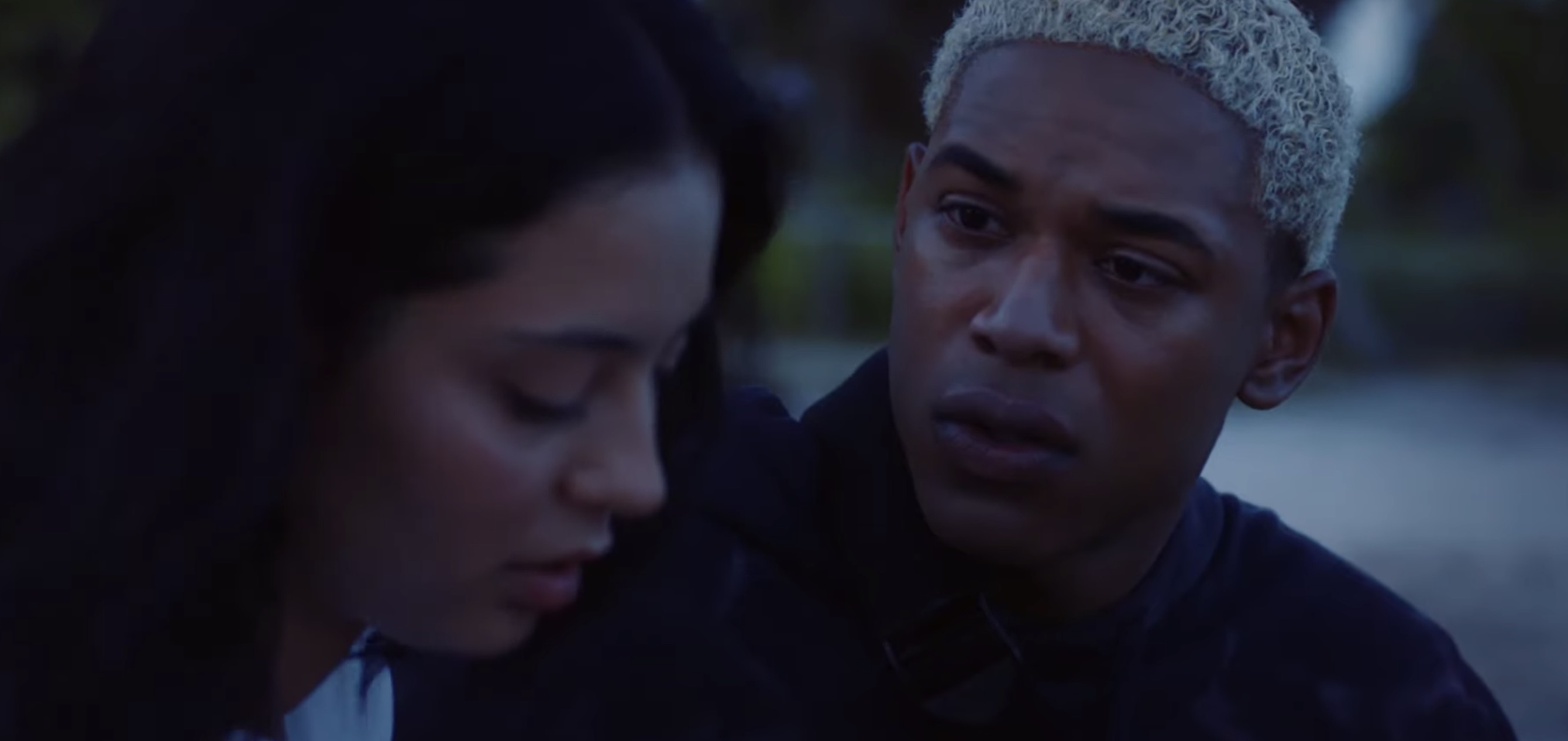There are films that takes time to build. They start uneventfully, and then slowly but surely grips you. Then, there are films that holds you by the scruff of the neck from the first frame itself and never gets you go. ‘Waves’, an emotional gut-wrenching drama, is definitely the second kind. I knew after about 2 minutes into the film that I am going to watch something special. In the end, my gut instincts proved to be right. The best way I can describe watching ‘Waves’ would be that it broke my heart into pieces and then carefully mended it back.
Trey Edward Shults, at 30, is already quite well-known name among indie circles. Thanks to his two previous films: ‘Krisha’ and ‘It Comes at Night’. Now, ‘Waves’ might catapult him to the big league of young directors working in Hollywood right alongside names like Damien Chazelle and Barry Jenkins. The similarity that Shults shares with the aforementioned names is that just like them he has a distinct style of filmmaking. Though, one can’t deny that Shults, especially in ‘Waves’, has been inspired by several of the greats and even his peers. Since I mentioned Jenkins, there are several shots in ‘Waves’, especially the ones filmed in the Ocean, that will remind you of ‘Moonlight’. But by far, the biggest inspiration that Shults draws from is Terrence Malick, who he has assisted in a few films. Think Shults style of filmmaking as Malick on Redbull. Having said that, let me not give anyone the impression that ‘Waves’ is similar to ‘Moonlight’ or for that matter any of Malick’s films. ‘Waves’ is a completely original piece of work that might actually end up inspiring a generation of younger filmmakers.
‘Waves’ is the story of a suburban African-American family led by a domineering father who wants his high-school-going son to become a pro-wrestler. The pressure of meeting his father’s lofty ambitions ultimately proves to be not just life-changing for the young teenager but also the whole family.
What’s so refreshing about ‘Waves’ is that it treats African-American family just as any other family. What I mean by that is ‘Waves’ could have very easily been about a white family or an Asian family, with the end result being the same. That Shults chooses an affluent black family — rarely seen in films — to tell his story shows both his confidence and maturity.
Apart from the emotional growth of the characters, that is so deftly handled in the film, what impressed me the most is that despite the story being centered around a violent incident, ‘Waves’ is not about violence or anger or hate. It’s about love. It’s about grief. It’s about regret. But more than anything else, it is about forgiveness. The characters in the film go through a lot of pain and frustration, but in the end they realize the only way to deal with the sense of loss and overwhelming sorrow is forgiveness.
And finally, let’s talk about film’s brilliant cinematography, music and editing. Cinema is a two-dimensional visual medium. Filmmakers try their best to give viewers a perspective from the point of view of what the characters are seeing or feeling, but of course, there are limitations to how convincing that experience can be. That’s where tools such as score and editing comes into picture. Unfortunately, not all filmmakers are able to use those tools to their fullest potential. But what Shults does with those tools at his behest is just amazing. There’s a 15-minute sequence leading up to “the major event” in the film that is possibly one of the best symbiosis and symphony of editing, sound mixing, music (Trent Reznor-Atticus Ross score is brilliant), and camera work I have ever seen. There are several moments in the film, including the one I just mentioned, where I felt I am not watching these characters on the screen, but I am observing them as a bystander.
Rating: 4.5/5

